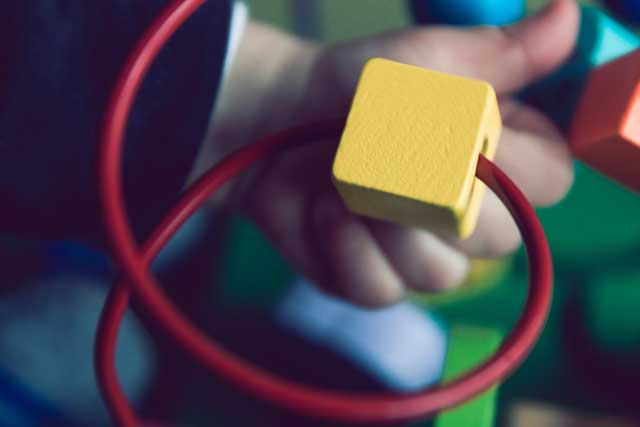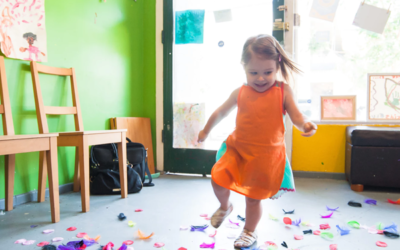Through play, children discover the world around them and their feelings about it. Play is also how children communicate these often-complex feelings. This is what makes play therapy such a powerful treatment. Pretending offers children the opportunity to “finally” be in charge and express what if feels like to be them.
Here are some more reasons why play therapy is so effective:
Play Reveals the Child’s Emotional Life
Though the characters of the real world and play world may be different, the storylines tend to be the same. A young girl may walk into a therapist’s office, spot the plethora of toys, grab a stuffed horse and kitten and make the horse hit the kitten repeatedly, all the while the kitten begs the horse to stop. While some adults might watch and perceive this young girl to be aggressive, a trained therapist recognizes this child is revealing a world of pain; the pain of living in a home where one parent routinely abuses the other.
Feelings can overwhelm children. Add to this their lack of a developed vocabulary to express these feelings and you have a young person with pent up emotions and nowhere to put them. Play therapy helps children reveal their inner emotional world.
Play Therapy Explores Other Options
Children are instinctual and impulsive. They haven’t yet developed the ability to stop, reason, and determine best courses of action.
Play therapy allows young people to explore different options, behaviors, and ways of feeling and thinking about things. Through play, a child may learn, for example, that aggression isn’t the only reaction, or even the best reaction, to a particular situation they are facing in home or at school. Understanding this is an area the child needs to work on, the therapist can assume a role or character and guide the dialogue and action of play toward a beneficial resolve and lesson.
Play Therapy Helps Children Feel They Will Be Okay
Children are often sent to therapy because they have been acting out at home or at school. By helping them work through their complex emotions, as well as making them feel heard and respected, play therapy helps children feel safe and okay, which results in the development of acceptable social behavior.
If you feel play therapy might be right for your child and would like to explore treatment options, please be in touch. We would be happy to discuss how we might be able to help your child work through their emotions.

How to Bring Up Resilient Children
Have you heard the phrase “helicopter parent?” It describes a mother or father that ‘hovers’ around their child 24/7, overseeing their life to keep them from every potential danger, pitfall and mishap. It looks good on paper, but this kind of parenting forgets one...
5 Ways to Get Your Teenager to Talk to You
It's tough trying to get your teen to talk. Science has shown that the teenager's brain has yet to fully develop the frontal cortex, which is the area that controls our ability to reason, and to think before we act. As your teen's brain develops, they're also learning...
How to Help Your Young Child Get Ready for the School Year After Summer Break
It’s that time of year again when big yellow buses can be seen driving around the neighborhood and school bells begin ringing. Going back to school can definitely be an exciting time for parents and children.But for some kids, especially younger ones, going back to...
Quick! Get Your "Top Tips For Getting the Most Out of Counseling" Cheatsheet!
Like some of what you've seen and want to see more? Sign up for our Mailing List for a free cheat sheet on making the most out of counseling. Our list members also gain access to exclusive specials and announcements, as well as the latest from our Counseling Blog!





